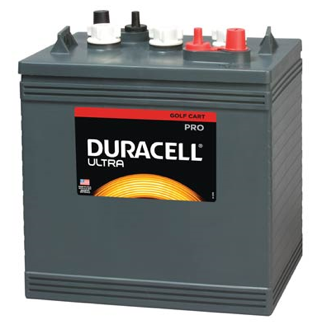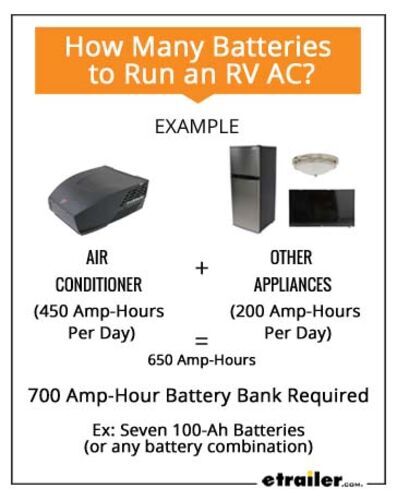Camper Batteries
When it comes to camping, a reliable battery is essential to keep your adventure running smoothly. A camper battery, also known as a deep cycle battery, is specifically designed to provide a steady flow of power over an extended period. Unlike traditional car batteries, camper batteries are built to withstand the rigors of off-grid camping, providing power for lights, appliances, and other essential equipment. With so many options available, choosing the right camper battery can be overwhelming. In this article, we'll delve into the world of camper batteries, exploring the key features, types, and tips for selecting the perfect one for your next camping trip.
Understanding Camper Batteries: A Comprehensive Guide
Camper batteries, also known as deep cycle batteries, are a crucial component of any recreational vehicle (RV) or camper. They provide the necessary power to run appliances, lights, and other electrical systems when you're off the grid. In this guide, we'll delve into the world of camper batteries, exploring their types, features, and maintenance requirements.
Types of Camper Batteries
There are several types of camper batteries available, each with its own unique characteristics and advantages. The most common types are:
Flooded Lead-Acid Batteries: These are the most affordable and widely used camper batteries. They contain a liquid electrolyte solution that requires regular maintenance.
AGM (Absorbed Glass Mat) Batteries: These batteries use a specialized glass mat to absorb the electrolyte solution, making them maintenance-free and more durable than flooded batteries.
Gel Batteries: These batteries use a gel-like electrolyte solution that's more resistant to vibrations and extreme temperatures.
Lithium-Ion Batteries: These are the most expensive but also the most efficient and long-lasting camper batteries. They're ideal for full-time RVers and those who require high-performance batteries.
| Type | Advantages | Disadvantages |
|---|---|---|
| Flooded Lead-Acid | Affordable, widely available | Requires regular maintenance, prone to corrosion |
| AGM | Maintenance-free, durable | More expensive than flooded batteries |
| Gel | Vibration-resistant, extreme temperature tolerance | More expensive than AGM batteries |
| Lithium-Ion | High-performance, long-lasting | Most expensive option |
Battery Capacity and Rating
Camper batteries are rated based on their capacity, which is measured in ampere-hours (Ah). A higher capacity battery can provide more power and last longer. The most common ratings are:
20Ah: Suitable for small campers and weekend getaways
40Ah: Ideal for medium-sized campers and occasional use
80Ah: Recommended for full-time RVers and heavy users
Battery Maintenance and Care-Camper Batteries
Proper maintenance is crucial to extend the lifespan of your camper battery. Here are some tips:
Check electrolyte levels: Regularly check the electrolyte levels in flooded batteries and top them off as needed.
Avoid deep discharging: Try to keep your battery above 50% charge to prevent deep discharging, which can reduce its lifespan.
Store batteries properly: Store your batteries in a cool, dry place and disconnect them from the electrical system to prevent drain.
Charging and Monitoring-Camper Batteries
Charging and monitoring your camper battery is essential to ensure it's functioning correctly. Here are some tips:
Use a high-quality charger: Invest in a charger that's designed for camper batteries and can charge them efficiently.
Monitor battery voltage: Keep an eye on your battery voltage to detect any issues or malfunctions.
Troubleshooting Common Issues
Here are some common issues you may encounter with your camper battery and their solutions:
Dead battery: Check for loose connections, corrosion, or faulty charging systems.
Slow engine crank: Check the battery voltage and charging system to ensure they're functioning correctly.
What kind of battery should you use in an RV?

When it comes to choosing the right battery for your RV, there are several factors to consider. The type and size of the battery you need will depend on the specifics of your RV, including its age, size, and electrical system. Here are some general guidelines to help you make an informed decision:
Deep Cycle Batteries vs. Starting Batteries
When it comes to RV batteries, you'll often hear the terms deep cycle and starting batteries. Deep cycle batteries are designed to provide a steady flow of energy over a long period of time, making them ideal for powering appliances and lights in your RV. Starting batteries, on the other hand, are designed to provide a short burst of energy to start the engine. For RV use, deep cycle batteries are usually the better choice.
Types of Deep Cycle Batteries
There are several types of deep cycle batteries to choose from, each with its own advantages and disadvantages. Here are a few popular options:
- Flooded Lead-Acid Batteries: These are the most common type of deep cycle battery and are relatively inexpensive. However, they require regular maintenance and can be heavy.
- AGM (Absorbed Glass Mat) Batteries: These batteries are maintenance-free and more durable than flooded batteries. They're also more expensive.
- Lithium-Ion Batteries: These batteries are the most expensive option, but they're also the lightest and most efficient. They're a good choice for smaller RVs or those with limited battery space.
Battery Size and Capacity
The size and capacity of the battery you need will depend on the electrical system of your RV and how much power you need to run your appliances. A general rule of thumb is to choose a battery with a capacity of at least 200-250 amp-hours (Ah) for small to medium-sized RVs.
Battery Maintenance and Care
Proper maintenance and care are essential to extending the life of your RV battery. Here are a few tips:
- Check the electrolyte level: Make sure the electrolyte level in your battery is at the recommended level.
- Avoid overcharging: Overcharging can damage your battery, so make sure to monitor the charging process.
- Keep the battery clean: Clean the terminals and cables regularly to prevent corrosion.
Upgrading to a Lithium-Ion Battery System
If you're considering upgrading to a lithium-ion battery system, here are a few things to keep in mind:
- Lithium-ion batteries are more efficient: They can charge and discharge more efficiently than traditional lead-acid batteries.
- Lithium-ion batteries are lighter: They're much lighter than traditional batteries, making them ideal for smaller RVs.
- Lithium-ion batteries require a special charger: Make sure you have a charger designed specifically for lithium-ion batteries.
How much does a new RV battery cost?

The cost of a new RV battery can vary greatly depending on several factors, including the type, size, and brand of the battery. On average, a new RV battery can cost anywhere from $100 to $1,000 or more.
Types of RV Batteries and Their Prices
There are several types of RV batteries available, each with its own price range. Here are some of the most common types of RV batteries and their prices:
Flooded Lead-Acid Batteries: $100-$300
AGM (Absorbed Glass Mat) Batteries: $200-$500
Deep Cycle Batteries: $300-$600
Lithium-Ion Batteries: $800-$1,500
Gel Batteries: $400-$800
Factors Affecting RV Battery Prices
Several factors can affect the price of a new RV battery, including:
- Ah Rating: A higher Ah rating means a more powerful battery, which can increase the price.
- Brand: Well-known brands like Trojan and Interstate tend to be more expensive than lesser-known brands.
- Size: Larger batteries with more capacity tend to be more expensive.
- Type: Different types of batteries, such as AGM or Lithium-Ion, can have different price points.
- Features: Additional features like built-in chargers or monitoring systems can increase the price.
Where to Buy RV Batteries and Their Prices
RV batteries can be purchased from a variety of retailers, both online and in-store. Here are some popular options and their prices:
Amazon: $100-$500
Walmart: $150-$300
Home Depot: $200-$400
Camping World: $250-$600
RV Dealerships: $300-$1,000
Warranty and Maintenance Costs
In addition to the initial purchase price, RV batteries also come with warranty and maintenance costs. Here are some things to consider:
- Warranty: Many batteries come with a 1-5 year warranty, which can affect the overall cost.
- Maintenance: Regular maintenance, such as charging and cleaning, can help extend the life of the battery.
Upgrading to a High-Capacity RV Battery
If you're looking to upgrade to a high-capacity RV battery, be prepared to pay a premium. Here are some things to consider:
- Increased Capacity: A higher-capacity battery can provide more power and longer battery life.
- Increased Cost: High-capacity batteries can cost $500-$1,500 or more.
- Installation: Upgrading to a high-capacity battery may require professional installation, which can add to the cost.
Do I need a deep cycle battery for my camper?

When it comes to powering your camper, one of the most critical components is the battery. But do you really need a deep cycle battery for your camper? The answer depends on several factors, which we'll explore in this article.
What is a Deep Cycle Battery?
A deep cycle battery is designed to provide a steady flow of energy over a long period. Unlike a starter battery, which is meant to provide a quick burst of energy to start an engine, a deep cycle battery is built to deliver a consistent flow of power for extended periods. This makes it ideal for camping, RVing, and boating applications.
Why Do I Need a Deep Cycle Battery for My Camper?
You need a deep cycle battery for your camper if you plan to camp off-grid or boondock (camp without hooking up to electrical power). A deep cycle battery will allow you to power your camper's appliances, such as lights, fridge, and HVAC system, for an extended period. Here are some benefits of using a deep cycle battery:
- Longer Power Supply: A deep cycle battery can provide power for several days, depending on the size and type of battery.
- Reliability: Deep cycle batteries are designed to withstand the rigors of camping and provide a consistent flow of power.
- Flexibility: With a deep cycle battery, you can camp wherever you want, without worrying about finding an electrical hookup.
How Do I Choose the Right Deep Cycle Battery for My Camper?
Choosing the right deep cycle battery for your camper depends on several factors, including the size of your camper, the number of appliances you need to power, and your budget. Here are some tips to consider:
- Determine Your Power Needs: Calculate the total power requirement of your camper's appliances to determine the size of the battery you need.
- Consider the Type of Battery: There are several types of deep cycle batteries, including flooded, AGM, and lithium-ion. Each type has its pros and cons.
- Check the Battery's Depth of Discharge (DOD): Look for a battery with a high DOD (e.g., 80%) to ensure it can provide power for an extended period.
Can I Use a Regular Battery Instead of a Deep Cycle Battery?
While it's possible to use a regular battery instead of a deep cycle battery, it's not recommended. Regular batteries are designed to provide a quick burst of energy and are not built to withstand the rigors of camping. They may not provide enough power for your camper's appliances, and they may not last as long as a deep cycle battery.
How Do I Maintain My Deep Cycle Battery?
Proper maintenance is crucial to extend the life of your deep cycle battery. Here are some tips to keep your battery in good condition:
- Monitor the Battery's State of Charge (SOC): Use a battery monitor to track the battery's SOC and prevent overcharging or undercharging.
- Avoid Deep Discharging: Try to keep the battery's SOC above 50% to prevent deep discharging, which can reduce the battery's lifespan.
- Keep the Battery Clean and Dry: Clean the battery terminals regularly and ensure the battery is stored in a dry, cool place.
How many batteries do I need to run a camper?

The number of batteries needed to run a camper depends on several factors, including the size of the camper, the type of appliances and devices you plan to use, and the duration of your trip. Generally, a camper requires a combination of deep cycle batteries and starter batteries to provide power for both the engine and the living quarters.
Here are some key considerations to help you determine how many batteries you need:
Assessing Your Power Needs
To determine how many batteries you need, you need to calculate your total power requirements. Make a list of all the appliances and devices you plan to use, including lights, refrigerators, computers, and televisions. Calculate the total ampere-hours (Ah) required to power these devices for the duration of your trip. You can use a battery calculator or consult with a professional to help you with this calculation.
Choosing the Right Battery Type
There are two main types of batteries used in campers: deep cycle batteries and starter batteries. Deep cycle batteries are designed to provide a steady flow of power over a long period, while starter batteries are designed to provide a high burst of power to start the engine. You may need a combination of both types of batteries, depending on your power needs.
Factors Affecting Battery Life
Several factors can affect the life of your batteries, including:
- Temperature: Extreme temperatures can reduce battery life.
- Depth of discharge: Avoiding deep discharging can extend battery life.
- Age: Older batteries may need to be replaced more frequently.
Wiring and Charging Considerations
Proper wiring and charging are critical to ensuring your batteries last as long as possible. Make sure to:
- Use heavy-gauge wiring to reduce voltage drop.
- Install a battery management system to monitor charging and discharging.
- Use a high-quality charger designed for deep cycle batteries.
Battery Maintenance and Replacement
Regular maintenance can help extend the life of your batteries. Make sure to:
- Check electrolyte levels regularly.
- Clean terminals to prevent corrosion.
- Monitor battery performance and replace batteries as needed.
Frequently Asked Questions
What is a Deep Cycle Battery and How Does it Differ from a Regular Battery?
A deep cycle battery is a type of battery designed to provide a steady flow of energy over a long period of time. Unlike a regular battery, which is designed to provide a quick burst of energy, a deep cycle battery is meant to be deeply discharged and then recharged many times. This makes it ideal for use in campers, RVs, and boats, where it may be necessary to power appliances and systems for extended periods of time. Deep cycle batteries are built with thicker plates and a more robust construction to withstand the repeated deep discharging and recharging. This allows them to maintain their performance and capacity over many cycles, making them a reliable choice for off-grid energy needs.
How Do I Choose the Right Camper Battery for My Needs?
Choosing the right camper battery for your needs involves considering several factors. First, you'll need to determine the total ampere-hour (Ah) rating required to power your appliances and systems. This will depend on the type and number of devices you'll be using, as well as the duration of your trips. Next, consider the battery type, such as flooded, AGM, or lithium-ion. Each type has its own advantages and disadvantages, so it's essential to choose the one that best fits your needs and budget. Finally, think about the maintenance requirements of the battery, as well as any special features you may need, such as built-in monitoring systems or remote monitoring capabilities.
How Do I Properly Maintain and Care for My Camper Battery?
Proper maintenance and care are essential to extending the life of your camper battery. First, make sure to keep the battery clean and free of corrosion by regularly cleaning the terminals and connections. Next, check the electrolyte levels regularly, adding distilled water as needed to maintain the recommended levels. It's also important to avoid deep discharging, as this can cause permanent damage to the battery. When not in use, store the battery in a cool, dry place, away from direct sunlight and extreme temperatures. Finally, follow the manufacturer's recommended charging and maintenance schedule to ensure your battery remains in good condition.
Can I Use a Regular Car Battery in My Camper, or Do I Need a Specialized Battery?
While it may be tempting to use a regular car battery in your camper, it's not recommended. Car batteries are designed to provide a quick burst of energy to start the engine, but they're not designed to provide a steady flow of energy over a long period of time. In contrast, camper batteries are designed specifically for deep cycle applications, making them better suited for powering appliances and systems in your camper. Using a car battery in your camper can lead to premature failure, as it may not be able to withstand the repeated deep discharging and recharging. Additionally, car batteries may not be designed to handle the vibration and shock associated with camper use, which can cause further damage. It's best to stick with a specialized camper battery designed for your specific needs.


